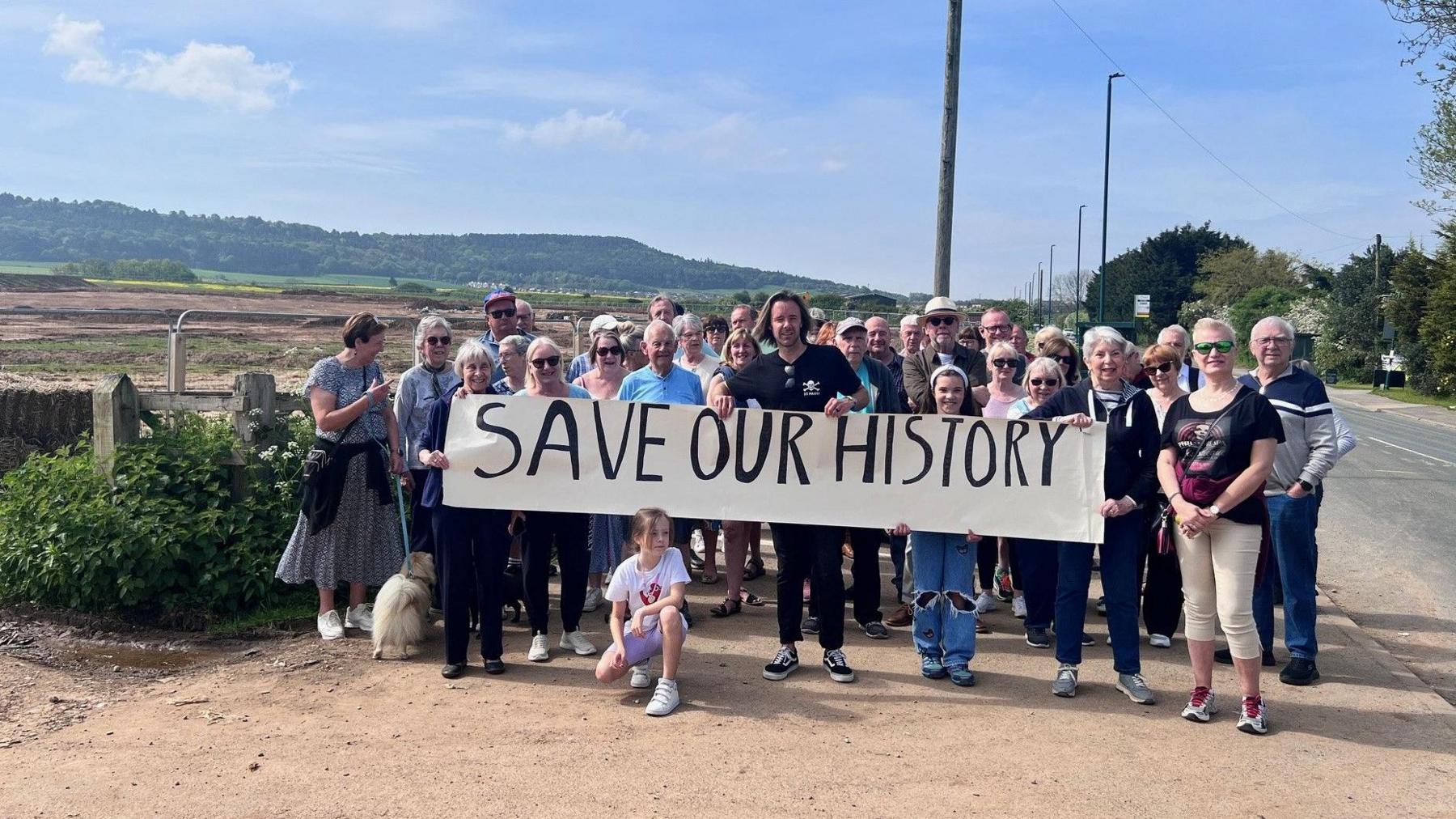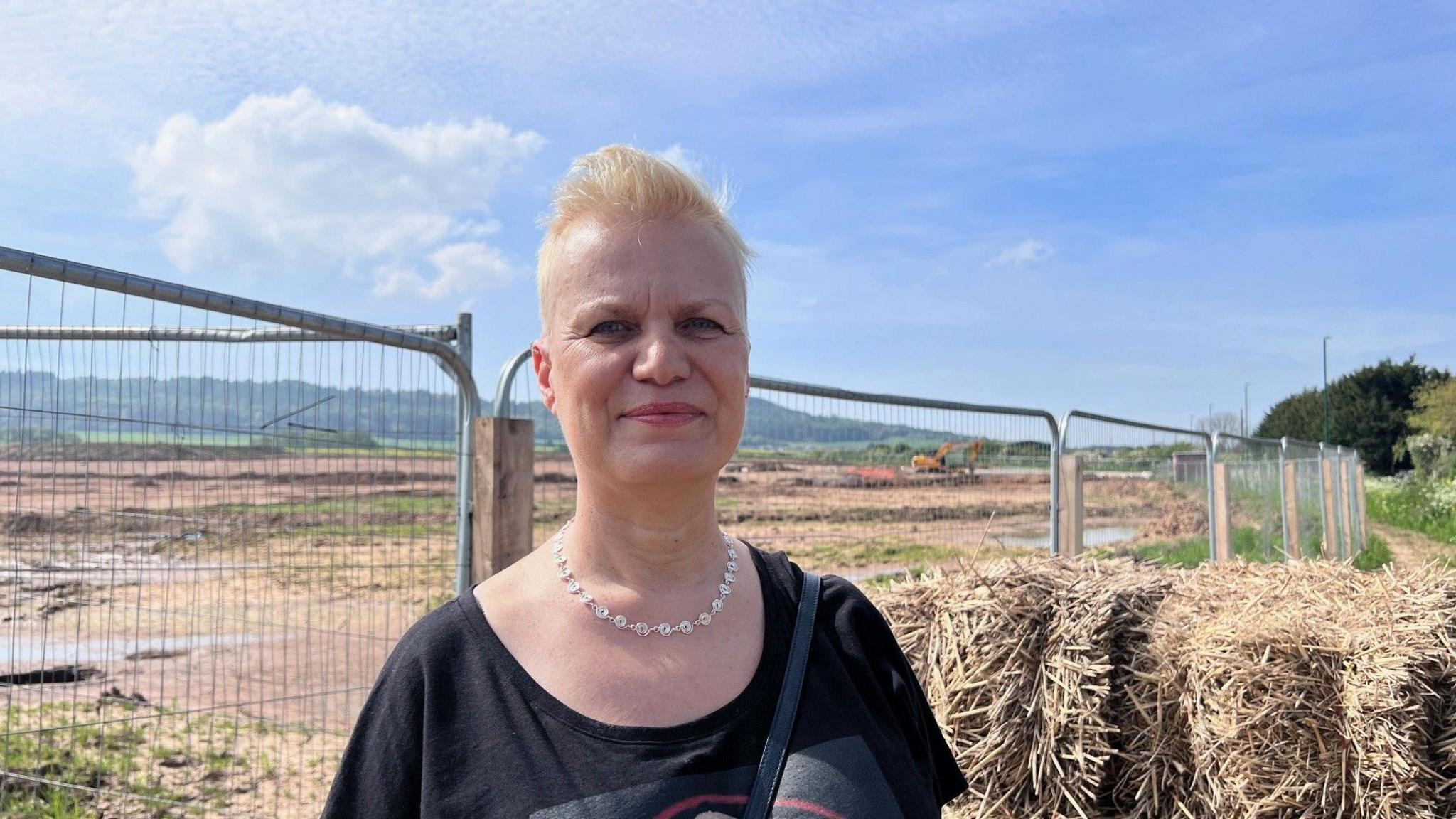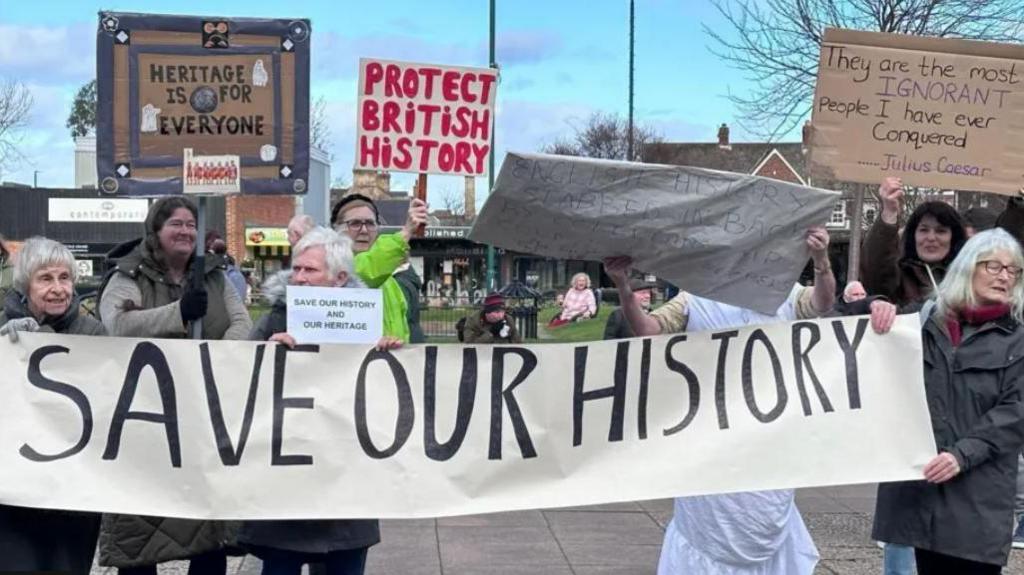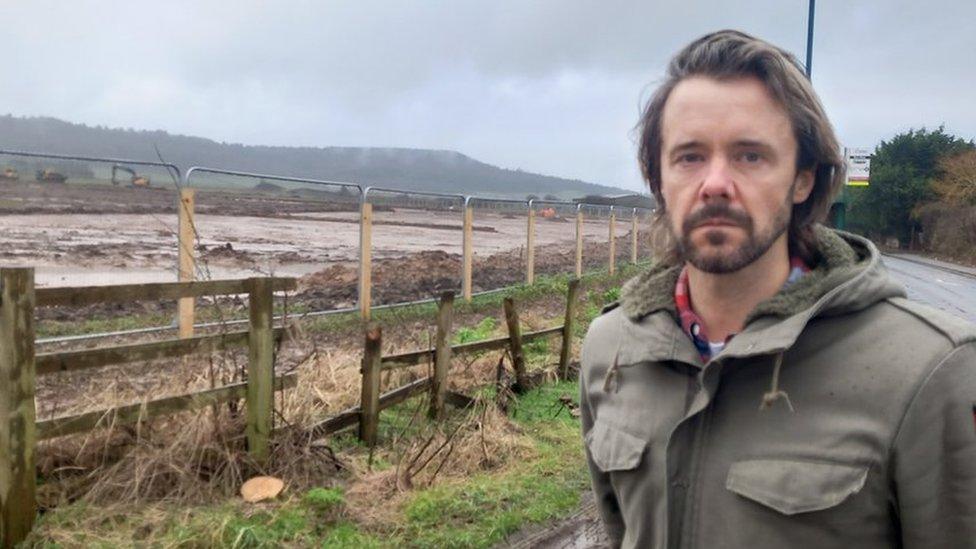Protest over houses being built on Roman remains

Protesters say the site is the only way they can learn about their history
- Published
A protest has been held near a former Roman settlement where plans have been approved for an 800-home development.
Campaigners want the site at Longbeck Road in Marske, Teesside, to be protected because of its history.
Archaeologist Kendra Quinn said it was "significant" as there were signs the area had been occupied for thousands of years.
Developers Taylor Wimpey and Miller Homes said their archaeological investigations had been approved by the local authority and the site was being protected from poor weather.
Romano-British pottery, animal bones and flint tools were unearthed at the site earlier this year.
Campaigners applied to Historic England to make an order to protect the plot.
A ministerial decision is expected later this year.

Tristan Learoyd says there are suspected remains from the Bronze Age, Iron Age and Roman period at the site
Dr Tristan Learoyd, a councillor at Redcar and Cleveland Council, who attended the protest on Saturday said the site was important as people in the area "don't have much information" about their history.
"Many of the people of Marske have lived here for generations and generations. This is probably our only opportunity to learn how we came to be here," he said.
"This area, we suspect, has archaeological remains from the Bronze Age, Iron Age and Roman period."
Dr Quinn said she believed the area needed preserving because of the scale of the settlement uncovered, estimated to be about the size of 71 football pitches.
"The size of it is unprecedented. It’s so massive compared to anything else even elsewhere in the country," she said.
"On top of that, it looks like they have found other eras apart from the Romans."

Archaeologist Kendra Quinn says there is evidence the settlement had been around for thousands of years
Developers Taylor Wimpey and Miller Homes said they were awaiting the decision on the consultation but archaeological investigations had been agreed with the council's archaeological advisor, with input from Historic England.
The developers said: "The archaeology team are working through the site in a structured manner which sometimes requires some of the excavated areas to be put on hold whilst other areas are worked on.
"Some of the site has been covered in plastic sheeting to protect it from the weather."
Follow BBC Tees on X (formerly Twitter), external, Facebook, external and Instagram, external. Send your story ideas to northeastandcumbria@bbc.co.uk.
Related topics
More stories from BBC North East and Cumbria
- Published2 March 2024

- Published10 January 2024
